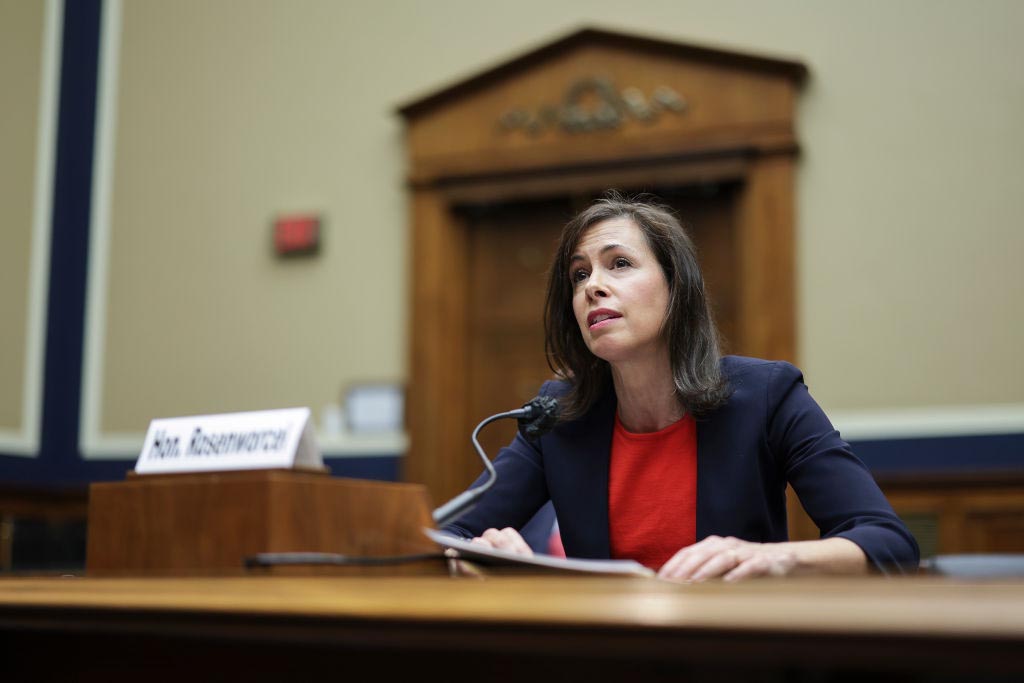FCC Proposes Video ‘All-In’ Pricing Disclosures
Would be the first time regulator imposes customer-service obligations on satellite

The smarter way to stay on top of the multichannel video marketplace. Sign up below.
You are now subscribed
Your newsletter sign-up was successful
The Federal Communications Commission has proposed requiring cable and satellite TV providers to give consumers the “all-in” price for their video service so they can price-shop among alternatives, including streaming services.
The FCC Tuesday (June 20) released a notice of proposed rulemaking that “would require cable operators and [direct-broadcast satellite] providers to clearly and prominently display the total cost of video programming service.”
“Consumers who choose a video service based on an advertised monthly price may be surprised by unexpected fees related to the cost of video programming that raise the amount of the bill significantly,” the NPRM said in introducing the issue.
In the FCC’s sites are the broadcast TV retransmission-consent fees and regional sports network rights fees cable operators are paying and passing along to consumers sometimes billed as a surcharge or tax, but that are not reflected in the advertised price.
The FCC said it had tentatively concluded that it has the regulatory authority to impose such customer service obligations on DBS, the first time it will have done so if it adopts the rulemaking.
The commission is seeking input on a host of related issues including: 1) how to apply its proposal to different promotional materials — pop-up ads, direct mail, etc.; 2) what reason, if any, operators have for labeling the retrans or sports net price increases as fees or taxes; and 3) whether there are already any laws against such labeling.
“Increases in programming costs shouldn’t be described as a tax, fee, or surcharge,” FCC chair Jessica Rosenworcel said. “The ‘all-in’ pricing format we propose today would allow consumers to make informed choices by letting them more easily comparison shop among competing providers and evaluate programming costs against alternative programming providers, including streaming services.”
The smarter way to stay on top of the multichannel video marketplace. Sign up below.
Grant Spellmeyer, president of ACA Connects, which represents smaller, independent cable operators, said the group would continue to review the NPRM.
“Our members are committed to transparency in their sales and billing practices — a commitment that stems from their ethos as community-based providers with longstanding ties to their communities,” Spellmeyer said. “As this proceeding unfolds, we are eager to provide and review the evidence and examine the root causes of ever-increasing prices for video programming that our members distribute, as well as ensure that any new requirements do not have the unintended effect of making video prices more opaque or confusing for subscribers.”
Consumer advocacy group Consumer Reports was favorable toward the idea.
“This FCC rule is welcome news for consumers in the fight against junk fees,” said Consumer Reports senior policy counsel Jonathan Schwantes said, pointing out that the NPRM cites a 2019 Consumer Reports report on hidden fees. “[The NPRM] will help address the practices of including hidden fees into customer bills, which has become all too common by cable and satellite TV providers.”
Schwantes used the opportunity to call on Congress to pass its Junk Fee Prevention Act , which would boost pricing transparency for cable, satellite “and beyond.”
Contributing editor John Eggerton has been an editor and/or writer on media regulation, legislation and policy for over four decades, including covering the FCC, FTC, Congress, the major media trade associations, and the federal courts. In addition to Multichannel News and Broadcasting + Cable, his work has appeared in Radio World, TV Technology, TV Fax, This Week in Consumer Electronics, Variety and the Encyclopedia Britannica.

